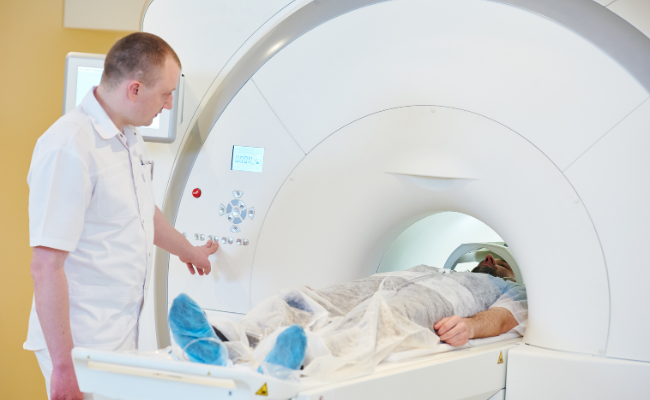AI Experiment Decodes Brain Scans, Revealing What People are Thinking
An AI experiment has successfully deciphered brain scans, giving insights into what people are thinking. On Monday, a group of scientists announced that they had developed a process to transcribe people’s thoughts.
The method they have discovered is by using artificial intelligence with brain scans. Seeing it as a huge step towards mind reading, the primary goal of the language decoder is to help patients who have lost their ability to speak.
Although the US scientists admitted that the new technology raises concerns about mental privacy, they have taken measures regarding these uncertainties.
Non-Invasive System for Thought Transcription

The language decoder works by training on a patient’s brain activity taken over a few hours using a functional magnetic resonance imaging (fMRI) scanner.
However, it can’t be used on anyone who doesn’t have consent over the overall training process. Past research showed that brain implants could assist those who are unable to communicate or type to create words or sentences.
But the language decoder only works on a more advanced level. It focuses on the meaning behind the thoughts instead of just on the words themselves.
You may also like: Learn AI for Free: 5 Exceptional Free Courses to Check Out
A New Level of Language Decoding
This AI experiment is the first to recreate continuous language without intrusive brain implants.
The researchers used an fMRI scanner to study how words, phrases, and meanings stimulate responses in the parts of the brain responsible for producing language.
Then they feed this data into a neural network language model using ChatGPT-1. It is the first version of the AI technology. The scientists tested the model’s efficiency by listening to a new story while inside the fMRI scanner.
According to the study author, Jerry Tang, the language decoder could “recover the gist of what the user was hearing.” Even if it struggles with using personal pronouns, the decoder can still grasp the general thought of the stories.
This is the same result even when participants thought of their own stories or watched silent films.
Addressing Ethical Concerns
David Rodriguez-Arias Vailhen, a bioethics professor not involved in the study, expressed his concerns. He acknowledged that this language decoder surpasses past brain-computer networks.
He noted that while it can bring forth a future where machines can read minds and translate thoughts, it could have adverse effects. The AI experiment can read minds even if it’s against people’s will or when they are sleeping.
You may also like: What is AI marketing? The next digital step for businesses
Moreover, participants could “sabotage” the language decoder using different strategies. This indicates that the user still has control over the AI technology.
In addition, the researchers are now working to step up the process so that they can decode brain scans in real-time. They are also working on regulations to protect mental privacy.
Rodriguez-Arias Vailhen, a bioethicist, emphasized that our minds have been the main guards of our privacy. But this discovery could be the initial step towards compromising that freedom in the long run.


